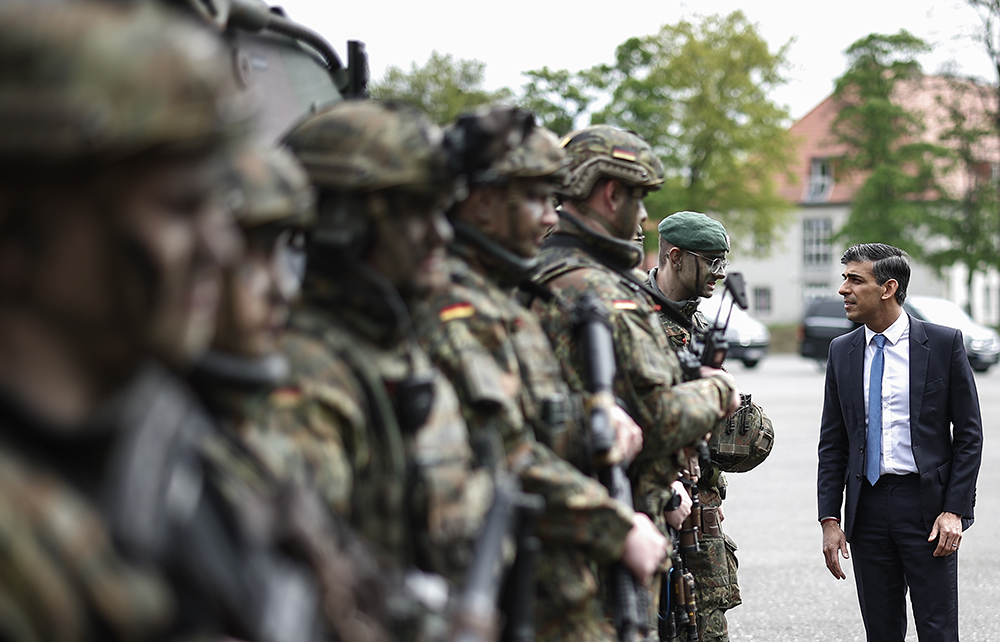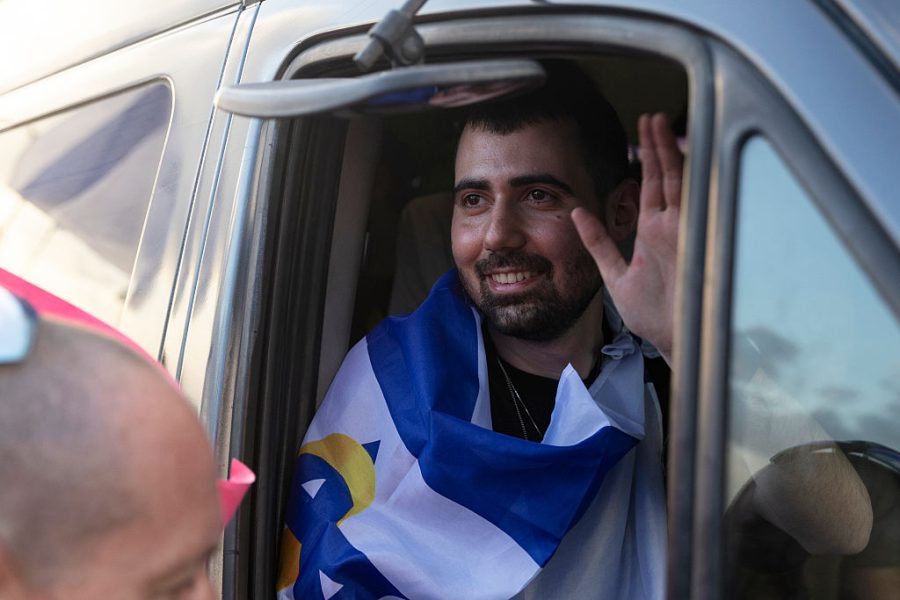After six months of delay, the US Senate has finally passed a $60 billion foreign-aid package which will send urgently needed ammunition and military equipment to Ukrainian soldiers. It may well be the last such cheque to be signed in Washington. Donald Trump is favourite to be the next president of the United States and the senators closest to his brand of ‘America First’ politics, J.D. Vance of Ohio and Josh Hawley of Missouri, led the opposition to the Ukraine package. Their argument, crudely put, is that Europe should bankroll its own defence.
The American money confirmed this week gives Europe about a year to adjust to this new reality and prepare for it. A generation had grown up believing that peace and democracy were the natural order of things. If wars needed to be fought, they believed the US would do the heavy lifting. This has now changed. There is a war in Europe and America is baulking at the cost of providing most of the military aid. The Baltic states – likely to be Russia’s next target if Kyiv were to fall – are rushing to restore their military strength. But Britain has been slow to adjust its spend accordingly.
The old days ended when Crimea fell a decade ago. Europe is now catching up
That changed when Rishi Sunak used the Nato meeting in Poland this week to announce his ambition to raise UK defence spending from 2.2 per cent of GDP to 2.5 per cent by 2030, if he wins the election. It is a sign of how much the world has changed in the past two years that German government officials are now pushing the UK government to go even further. Britain’s first consignment of military aid to Ukraine – the first in the world – had to be flown on a circuitous route so as to avoid German airspace.
Five years ago, Germany was spending only 1.3 per cent of GDP on defence: way below the 2 per cent target that members committed to as a minimum. Now it is leading the rearmament of western Europe. Germany spent €5.1 billion on the defence of Ukraine last year. This year, it has allocated €7.1 billion. Poland, for its part, is spending twice as much on defence as it did a decade ago. Its spending now comes in at 3.8 per cent of GDP, still short of its declared goal of 4 per cent.
Vladimir Putin’s annexation of Crimea in 2014 – his first land grab in Ukraine – had very little effect in persuading Nato’s European member states to take their own defence more seriously. When the Kremlin’s troops defied international law and started a war in eastern Ukraine that left thousands dead, 11 European Nato states actually reduced their military expenditure. No wonder Putin felt emboldened to attempt a full invasion. He had already seen Ukraine’s supposed allies look the other way.
An alliance of wealthy western and central European nations ought to be able to hold its own against the Russian military, even absent US support. Yet virtual exercises by the International Institute for Strategic Studies (IISS) showed that this was by no means guaranteed. In countering a theoretical Russian invasion of Lithuania and north-east Poland, it concluded, a Nato without America would find itself short of up to 62,000 soldiers, 3,750 tanks, 960 artillery guns, 264 fighter aircraft and 396 pilots. A large part of the problem was that existing forces are using obsolete weapons or are badly organised. To put this right would require £340 billion of defence spending.
For too many years, European governments had been busy spending what they liked to call their ‘peace dividend’ – a theoretical saving in military spending facilitated by the end of the Cold War – and even when the threat of war had returned they continued to do so. Military forces were run down and money diverted to social programmes instead. These programmes are much more popular with – and a lot more visible to – voters. Meanwhile, the Iraq war put many a democratic country off all military operations. Wars became monstrous follies a long way from home.
Ukraine has reminded Europe of the reality of war. But how much does Sunak really intend to rebuild Britain’s military strength? As German officials pointed out this week, there is no proper plan of how the UK government intends to spend the extra money. Nor is it obvious where it will find it. Sunak can promise whatever he likes next year: the odds on his still being in No. 10 are slim. Keir Starmer has said he’d like to hit 2.5 per cent, but that’s merely an ambition.
Sunak is promising a very modest rebuilding of our armed forces – and even then he has no convincing way to finance it. Britain would still lose its place at the forefront of Nato’s most committed military spenders. Recently, three former Tory defence secretaries have signed a joint letter saying that Britain needs to spend 3 per cent of GDP on defence. This is more in the region of what will be needed if Europe is expected to defend itself. The old days ended when Crimea fell a decade ago; only now is the continent catching up. With Ukrainian soldiers losing ground and running out of munitions and defences, there is not much time.







Comments